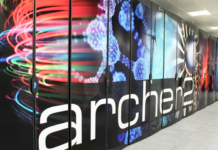Clika was founded by Ben Asaf and Nayul Kim. Ben Asaf has extensive experience in building dev infrastructure at Mobileye, a leading autonomous driving startup. He also worked on accelerating AI model training at Hebrew University. Nayul Kim, on the other hand, has worked as a digital transformation consultant for enterprises. Together, they have the expertise to tackle the roadblocks faced by software engineers and firms when deploying AI models into production.
Clika’s mission and goals
Clika’s mission is to make AI models lighter, faster, and more affordable to productize and commercialize. The company aims to remove the major challenges in deploying AI models by providing a toolkit that automatically downsizes internally developed AI models. This compression not only reduces compute power consumption but also speeds up inferencing. Clika’s goal is to make AI model deployment seamless and efficient for businesses of all sizes.
Understanding AI Model Compression
Explanation of AI model compression
AI model compression refers to the process of reducing the size of AI models without significantly impacting their performance. It involves various techniques that optimize the model’s parameters, structure, and representation. Through compression, the model becomes more efficient in terms of storage, compute requirements, and deployment on different devices.
Importance of model compression in the AI industry
Model compression is crucial in the AI industry due to several reasons. Firstly, compressed models require less compute power, making them faster and more cost-effective. This is particularly important as AI models become more complex and resource-intensive. Secondly, compressed models are compatible with a wide range of devices, including servers, the cloud, edge devices, and embedded devices. This enables easier deployment and accessibility of AI models across different platforms. Lastly, model compression helps address supply chain issues in the AI hardware industry, where shortages of specialized hardware can disrupt AI services. Compressed models can run efficiently on existing hardware, mitigating the impact of hardware shortages.
Clika’s Compression Engine
Methods used by Clika for compression
Clika employs various methods for AI model compression. One of the key techniques they use is quantization. Quantization reduces the number of bits required to represent information in a model, sacrificing some precision in the process. This significantly reduces the model’s size and compute requirements without compromising its performance. Clika’s compression engine also has an AI approach, which means it understands different AI model structures and applies the best compression method for each unique model.
Techniques such as quantization
Quantization is a powerful technique used by Clika for AI model compression. By reducing the number of bits needed to represent data, quantization achieves significant model size reduction and computational efficiency. This technique works by sacrificing some precision, which may not be crucial for certain AI tasks. Quantization allows models to be deployed on resource-constrained devices without compromising their performance.
Differentiation from other compression solutions
Clika differentiates itself from other compression solutions through its unique compression engine. While many other solutions use rule-based techniques, Clika’s compression engine applies an AI approach. It understands the specific structures of different AI models and applies the most suitable compression method for each model. This tailored approach ensures optimal compression performance and sets Clika apart from its competitors.
Benefits of Clika’s Compression Engine
Increased speed of AI models
By compressing AI models, Clika significantly increases their speed. The reduced size and compute requirements allow for faster inferencing, enabling real-time or near-real-time processing of AI models. This speed improvement is essential in applications where quick responses are crucial, such as autonomous driving, object detection, and natural language processing.
Reduced compute power consumption
Clika’s compression engine effectively reduces the compute power consumed by AI models. The optimized models require fewer computational resources, resulting in lower costs and energy consumption. This benefit is especially valuable for businesses that rely on AI models at scale, where cost savings and environmental sustainability are important considerations.
Compatibility with various devices
Clika’s compression engine ensures that compressed AI models are compatible with various devices, including servers, the cloud, edge devices, and embedded devices. This compatibility enables seamless deployment and accessibility of AI models across different platforms. Businesses can efficiently deploy models according to their specific needs, without worrying about compatibility issues.
Interest in Efficient Models
Growing demand for efficient AI models
There is a growing demand for efficient AI models in the industry. As AI models become more complex and resource-intensive, the need for optimization and compression becomes crucial. Businesses are looking for ways to reduce compute power consumption, increase the speed of AI models, and ensure compatibility across different devices. Efficient models also allow for wider adoption of AI technologies, as they become more affordable and accessible to a broader range of businesses and applications.
Supply chain issues in the AI hardware industry
The AI hardware industry is facing supply chain issues, which further highlights the importance of efficient AI models. Shortages of AI hardware can disrupt services and hinder the deployment of resource-intensive models. Clika’s compression engine addresses these supply chain challenges by optimizing models to run efficiently on existing hardware. This ensures that businesses can continue to utilize AI technologies without being heavily dependent on specialized hardware availability.
Clika vs Competitors
Other startups in the AI model compression space
Clika competes with several other startups in the AI model compression space. Some notable competitors include Deci, OctoML, and CoCoPie. These startups also offer solutions to optimize and compress AI models for improved performance and efficiency.
Technological advantages of Clika’s compression engine
Clika believes it has a technological advantage over its competitors. While other solutions use rule-based techniques for compression, Clika’s compression engine employs an AI approach. It understands the unique structures of different AI models and applies the most suitable compression method for each model. This tailored approach ensures maximum compression performance and sets Clika apart from its competitors. According to Clika’s founder, their compression engine outperforms existing solutions developed by Meta and Nvidia, making it the world’s best compression toolkit for vision AI.
Investment and Funding
Pre-seed funding raised by Clika
Clika has already secured pre-seed funding, raising $1.1 million in a round last year. The funding round saw the participation of investors such as Kimsiga Lab, Dodam Ventures, D-Camp, and angel investor Lee Sanghee. This initial round of funding has provided Clika with the necessary resources to develop and refine its compression engine.
Investors and participation
The pre-seed funding round attracted investors who recognized the potential of Clika’s technology. Kimsiga Lab, Dodam Ventures, D-Camp, and angel investor Lee Sanghee have shown confidence in Clika’s vision and have actively contributed to its funding efforts.
Upcoming seed funding plans
Clika has plans to pursue seed funding in the near future. With its pre-seed funding and the traction gained through the closed beta phase, Clika aims to secure additional funding to further accelerate its growth and expand its customer base. The seed funding will provide Clika with the necessary resources to scale its operations and reach more businesses with its compression engine.
Clika’s Customer Base
Current closed beta for select businesses
Clika is currently running a closed beta program for a select few businesses. This closed beta allows Clika to gather feedback, refine its compression engine, and ensure compatibility across various use cases and industries. By working closely with these businesses, Clika aims to fine-tune its offering and deliver maximum value to its customers.
Plans for customer acquisition
Clika has plans for customer acquisition once it completes its closed beta program. With a refined compression engine and valuable feedback from beta testers, Clika aims to attract businesses that are looking to optimize and compress their AI models. The benefits of increased speed, reduced compute power consumption, and compatibility with various devices make Clika an attractive choice for businesses in need of efficient AI model deployment.
In summary, Clika is a promising startup in the AI model compression space. With its unique compression engine and focus on speed, compute power reduction, and compatibility, Clika aims to address the challenges faced by businesses deploying AI models. Its pre-seed funding and upcoming seed funding plans indicate investor confidence in Clika’s technology and potential for growth. As Clika continues to refine its offering through the closed beta program, it is well-positioned to acquire customers and make a significant impact in the AI industry.












